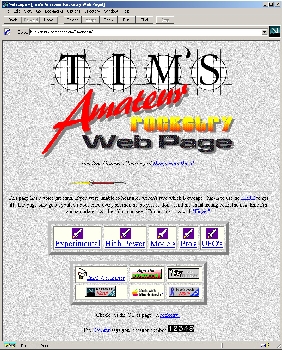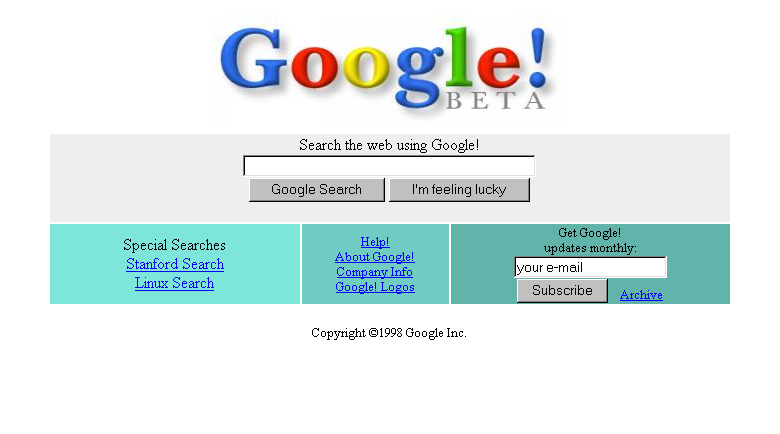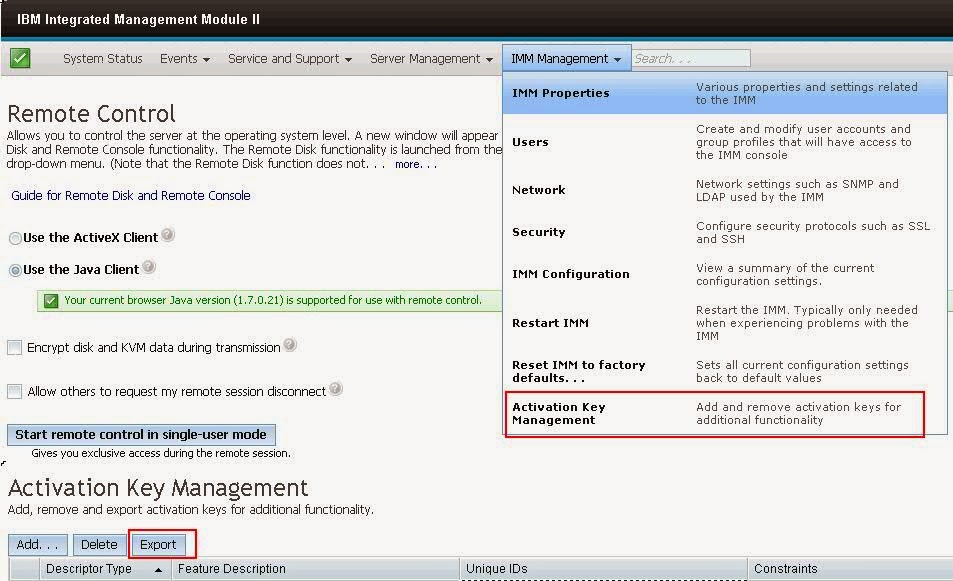How Google Changed the World and Rescued the Internet
The year was 1996. It had only been 15 years since 1981, when Microsoft had introduced their revolutionary DOS operating system on IBM and other PCs, and started their ambitious goal of putting a personal computer into every home. The world had also just started to transition to the color of Windows 95 monitors after more than a decade immersed in monochrome monitors.

That same year, Netscape Navigator, the world’s first successful internet browser, came out with two improved versions of its browser, versions 2.0 and 3.0. Two years ago, in 1994, Yahoo! had created the first comprehensive directory of the world wide web with their Yahoo! directory. The internet for the general public was born in the mid 90s, as many people rushed to post information onto the internet, supporting its initial growth.
An early version of Netscape:

With all this information on the internet, it was critical to find a way for people to find information. With a way to find information that people needed, it would further support the growth and continued use of the internet. During the late 90s, the search engine Alta Vista became the most popular search engine in the world, allowing people to find some of the information they were searching. However, its search results were mostly trashy, as it was difficult to pinpoint relevant information for which you were searching.
Fortunately, in 1996, a new university graduate project collaboration between two graduate students, Larry Page and Sergey Brin, was under way. It used an innovative approach. Instead of merely using a forward mechanism of searching for pages, it calculated a web page’s importance or relevance based on backlinks linking to a certain site, through PageRank, after crawling and indexing as many pages as possible. The result was a highly-targeted search engine, which allowed for highly precise search results, truly allowing people to find a needle in a haystack. What, in the past, may have taken days, weeks, months, or even a lifetime of searching, just took a few seconds. The company, Google, was incorporated in 1998.
An early version of Google in beta:

Like many of us, Google’s initial beginnings were humble. As poor graduate students, the founders of Google sometimes looked for microprocessors that were being dumped and not used by the university any more in order to use them for servers. Gradually, knowledge about the relevance and usefulness of Google’s search engine spread throughout the world. In 2000, Google tried to sell its search engine to Yahoo! for $1 million, but Yahoo! unfortunately, did not have the foresight and declined.
After the .com crash at the turn of the millennium, many more useless internet companies had to fold. Throughout this time, Google, who provided a highly essential service to people, was able to plough through this difficult period and give the internet its needed structure and stability. Eventually, Google figured out a way to monetize its search engine through AdWords in 2002.
For an interesting article on changing the world, check out an interview with Larry Page: Larry Page on How to Change the World.

That same year, Netscape Navigator, the world’s first successful internet browser, came out with two improved versions of its browser, versions 2.0 and 3.0. Two years ago, in 1994, Yahoo! had created the first comprehensive directory of the world wide web with their Yahoo! directory. The internet for the general public was born in the mid 90s, as many people rushed to post information onto the internet, supporting its initial growth.
An early version of Netscape:

With all this information on the internet, it was critical to find a way for people to find information. With a way to find information that people needed, it would further support the growth and continued use of the internet. During the late 90s, the search engine Alta Vista became the most popular search engine in the world, allowing people to find some of the information they were searching. However, its search results were mostly trashy, as it was difficult to pinpoint relevant information for which you were searching.
Fortunately, in 1996, a new university graduate project collaboration between two graduate students, Larry Page and Sergey Brin, was under way. It used an innovative approach. Instead of merely using a forward mechanism of searching for pages, it calculated a web page’s importance or relevance based on backlinks linking to a certain site, through PageRank, after crawling and indexing as many pages as possible. The result was a highly-targeted search engine, which allowed for highly precise search results, truly allowing people to find a needle in a haystack. What, in the past, may have taken days, weeks, months, or even a lifetime of searching, just took a few seconds. The company, Google, was incorporated in 1998.
An early version of Google in beta:

Like many of us, Google’s initial beginnings were humble. As poor graduate students, the founders of Google sometimes looked for microprocessors that were being dumped and not used by the university any more in order to use them for servers. Gradually, knowledge about the relevance and usefulness of Google’s search engine spread throughout the world. In 2000, Google tried to sell its search engine to Yahoo! for $1 million, but Yahoo! unfortunately, did not have the foresight and declined.
After the .com crash at the turn of the millennium, many more useless internet companies had to fold. Throughout this time, Google, who provided a highly essential service to people, was able to plough through this difficult period and give the internet its needed structure and stability. Eventually, Google figured out a way to monetize its search engine through AdWords in 2002.
For an interesting article on changing the world, check out an interview with Larry Page: Larry Page on How to Change the World.

Comments